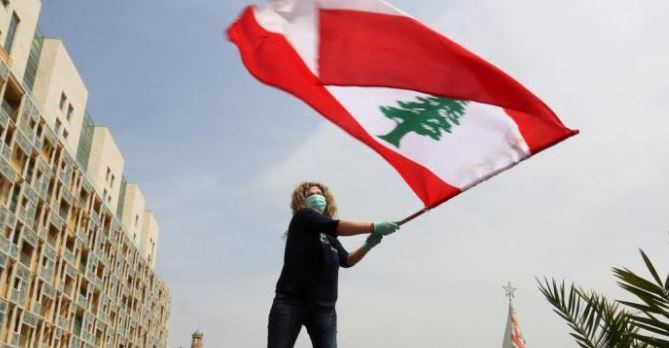
On May 04, 2020, the U.N. Security Council backed Lebanon’s efforts to end the country’s economic crisis and approach other challenges including the impact of COVID-19, and called on the international community to help.
Lebanon is one of the most indebted nations in the world that defaulted for the first time in March 2020 on its sovereign debt.
In October 2019, anti-government protests that erupted subsided during a nationwide lock-down since mid-March to blunt the spread of the coronavirus.
The authorities have started to ease the restrictions now; the prime minister said he will seek a rescue program from the International Monetary Fund but protesters rallied again, criticizing the government’s handling of the unprecedented crisis that saw the local currency crash.
The U.N. Security Council discussed the implementation of a 2004 resolution that called for the Lebanese government to extend its authority throughout the country and all Lebanese and non-Lebanese militias to disband.
Antonio GUTTERS the U.N. Secretary-General also addressed Lebanon’s current economic crisis and the COVID-19 pandemic: “As the dire economic and financial situation in Lebanon is now compounded by the adverse impact of COVID-19 on the country’s economy, it is all the more urgent that the country’s leaders develop and implement the required reforms”.
“Measures to prevent, limit and mitigate the impact of the pandemic have to be taken in parallel to the provision of financial and food support to the rapidly increasing numbers of the most vulnerable groups of the population facing dire poverty” he said.
The Security Council statement “recognized the additional challenges posed by the global COVID pandemic, also on the Lebanese economy, and commended the preventive measures taken by the UNIFIL in that regard”
GUTTERES said he continues to urge Lebanon’s government and armed forces “to take all measures necessary to prohibit Hezbollah and other armed groups from acquiring weapons and building paramilitary capacity outside the authority of the state.”
He warned that Hezbollah’s, Iranian-backed continued involvement in Syria where it supports ASSAD’s government, “carries the risk of entangling Lebanon in regional conflicts and undermining the stability of Lebanon and the region”.
Ambassador SCHULZ, Germany’s deputy to U.N. told the council that “Lebanon is facing an unprecedented challenge” to its political leadership and the country’s stability, according to the text of his statement to the closed meeting. He said it was “very good” that the government has adopted a comprehensive economic reform plan and its approach to the COVID-19 crisis “has been a major achievement in the last two months”. “At the same time, many challenges remain and we continue to remain very worried that there is a real risk that the country could drift towards economic and financial collapse and see a prolonged political crisis” SCHULZ said.
This article was edited using the data from the Apnews, Washingtonpost.com, and World-news-monitor.com.
Source of the photo: aawsat.com.













